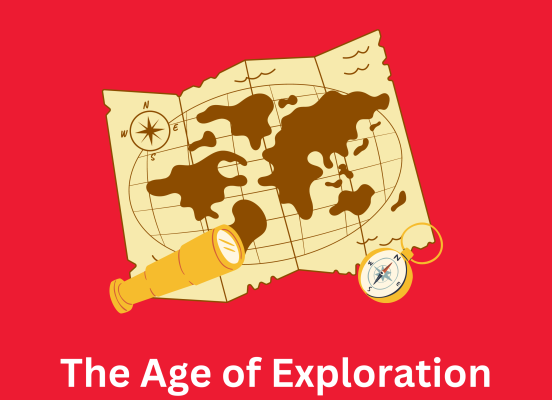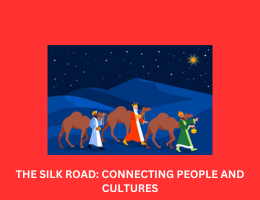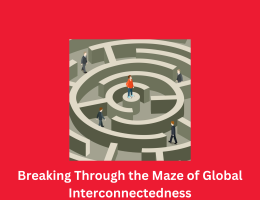
The Age of Exploration: European Voyages, Motivations, Discoveries, and Consequences
- By admin --
- Thursday, 07 Mar, 2024
Introduction:
The Age of Exploration, spanning from the 15th to the 17th centuries, witnessed a profound expansion of European influence through maritime expeditions to distant lands. Motivated by a variety of factors, including economic opportunity, religious zeal, and the thirst for knowledge, European explorers embarked on daring voyages that reshaped the world map and transformed global interactions. By examining the motivations behind these voyages, the discoveries they yielded, and the far-reaching consequences they wrought, we gain insight into this pivotal period of history.
Motivations for Exploration:
The motivations driving European exploration were multifaceted and interconnected. Economic factors played a significant role, with European powers seeking new trade routes to bypass the lucrative spice trade monopolies controlled by Middle Eastern and Mediterranean powers. Additionally, the desire for precious metals, such as gold and silver, fueled expeditions to regions rumored to be rich in resources.
Religious motivations also spurred exploration, particularly with the spread of Christianity in Europe. The Reconquista in Spain and the expulsion of Muslims and Jews heightened religious fervor and a desire to spread Christianity to distant lands. Explorers saw themselves as agents of conversion and sought to bring salvation to non-Christian peoples.
Technological advancements, particularly in navigation and shipbuilding, facilitated exploration. The development of the caravel, improved navigational instruments such as the astrolabe and compass, and the adoption of the magnetic compass revolutionized maritime travel, enabling explorers to venture farther from the familiar shores of Europe.
Discoveries and Explorers:
The Age of Exploration witnessed a plethora of significant discoveries and the emergence of legendary explorers. Christopher Columbus's voyage in 1492, funded by the Spanish monarchs Ferdinand and Isabella, led to the "discovery" of the Americas, although indigenous peoples had inhabited these lands for millennia.
Subsequent expeditions by other European powers further expanded the known world. Vasco da Gama's voyage around the Cape of Good Hope to India in 1498 established a sea route to the lucrative spice markets of Asia, while Ferdinand Magellan's circumnavigation of the globe from 1519 to 1522 demonstrated the true extent of the Earth's dimensions.
Other notable explorers include John Cabot, who explored the coast of North America for England in 1497, and Hernán Cortés, whose conquest of the Aztec Empire in present-day Mexico in the early 16th century brought vast territories under Spanish control.
Consequences of Exploration:
The consequences of European exploration were far-reaching and varied. The Columbian Exchange, named after Christopher Columbus, facilitated the exchange of goods, ideas, and diseases between the Old World and the New World. While European diseases decimated indigenous populations in the Americas, the introduction of new crops such as maize, potatoes, and tomatoes revolutionized agriculture and diets worldwide.
Colonization and conquest transformed societies on both sides of the Atlantic. European powers established vast empires in the Americas, Africa, and Asia, exploiting natural resources and indigenous labor to fuel economic growth. The establishment of colonies led to the forced displacement and subjugation of indigenous peoples, as well as the transatlantic slave trade, which brought millions of Africans to the Americas.
The Age of Exploration also sparked cultural exchange and innovation. European encounters with indigenous civilizations led to the exchange of knowledge, languages, and technologies. In the fields of astronomy, cartography, and navigation, European explorers incorporated indigenous knowledge and techniques into their own practices, advancing scientific understanding and expanding the known world.
Conclusion:
The Age of Exploration was a transformative period in world history, characterized by daring voyages, significant discoveries, and profound consequences. Motivated by economic, religious, and technological factors, European explorers ventured into uncharted waters, reshaping global trade routes, and establishing vast colonial empires. While exploration brought about unprecedented cultural exchange and scientific innovation, it also resulted in the exploitation and subjugation of indigenous peoples and the imposition of European hegemony on distant lands. The legacy of the Age of Exploration continues to shape the modern world, reminding us of the enduring impact of human curiosity, ambition, and ambition.





